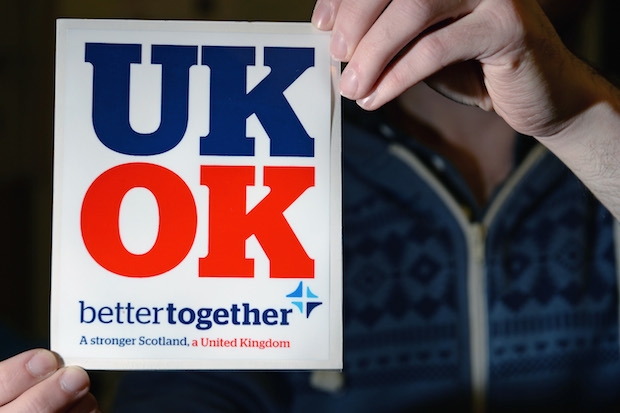It is not surprising that the first Scottish opinion poll to be done since Alex Salmond published his White Paper on Independence last week would slip by almost unnoticed. After all, the attention of the Scottish media was somewhere else. It was focused, quite rightly, on events in Glasgow and the aftermath of the terrible helicopter crash there.
As a result, the Progressive Scottish Opinion for the Scottish Mail on Sunday appeared and then, somewhat understandably, faded away quite quickly.
It was a poll which, on most weekends, would have carried the front page for the paper. However, it was relegated to page 14 by the tragedy in Glasgow.
It is, though, worth looking at because the results are most instructive. Mr Salmond published his White Paper on Tuesday 26 November in a blaze of media attention. The poll of 1,134 Scottish adults was taken in the days that followed. The pollsters found support for independence at just 27 per cent. This is exactly the same figure as the same pollsters recorded when they asked the same question in September. Support for the Union had slipped, a little, from 59 per cent in September to 56 per cent now, with that small group shifting from ‘No’ to ‘don’t know’.
So the results are pretty clear: Mr Salmond’s White Paper had not shifted public opinion by even one per cent in favour of independence, at least in the immediate aftermath of the launch.
It could be argued that the poll was taken too early after the publication of the White Paper and Scots had not had the chance to digest it properly. But, alternatively, it could also be claimed that the days after the publication of the White Paper will provide the high point for the White Paper because Mr Salmond had been given so many opportunities to push his case on the TV and radio.
Indeed, in the days and weeks that follow, the positive effect of the White Paper on the Yes camp’s cause could slip as the unionists worry away at individual parts of it until it starts to unravel.
Whichever way it is looked at, though, it is hard to spin it favourably for the Yes camp.
There was some very interesting detail hidden within it, too. The Mid Scotland and Fife area – which has been quite pro-SNP recently – showed the greatest support for the Union of any part of Scotland, with 67 per cent planning to vote No and just 20 per cent voting Yes.
There was perhaps greater surprise in the result from the North East of Scotland, for many years the heartland of SNP support and Mr Salmond’s stamping ground. Even in this area, which was dominated entirely by the SNP at the 2011 election, 64 per cent said they intended to vote No with 26 per cent backing independence.
The split between men and women was pronounced too, with woman much more likely to oppose independence than men. According to the poll, 32 per cent of men but just 23 per cent of women support independence. The percentage backing the Union is the same for men and women, at 56 per cent, but there are more undecided women than men – a demographic that the SNP clearly has to start targeting if it is to make any meaningful progress in this contest.
The Yes camp did, though, find the small shift recorded in the poll from ‘No’ to ‘don’t know’ encouraging. A spokesman said:
‘The shift away from No to undecided reflects a trend that we are finding more and more as the campaign progresses. We know from our own research that the more people learn about the benefits of independence, the more likely they are to vote Yes.’
Alistair Darling, head of the No campaign, was understandably more critical.
He said: ‘The SNP’s manifesto for breaking up the UK completely failed to pass even the basic tests.’ And he added: ‘This poll confirms Scots are choosing devolution in the UK over separation from the UK. But we cannot be complacent for one moment.’
Poll results:
Progressive Scottish Opinion poll of 1,134 adults in Scotland, taken 27-29 November and published in the Scottish Mail on Sunday on December 1 2013.
Should Scotland be an independent country?
Yes – 27 per cent
No – 56 per cent.
Don’t know – 17 per cent.






Comments